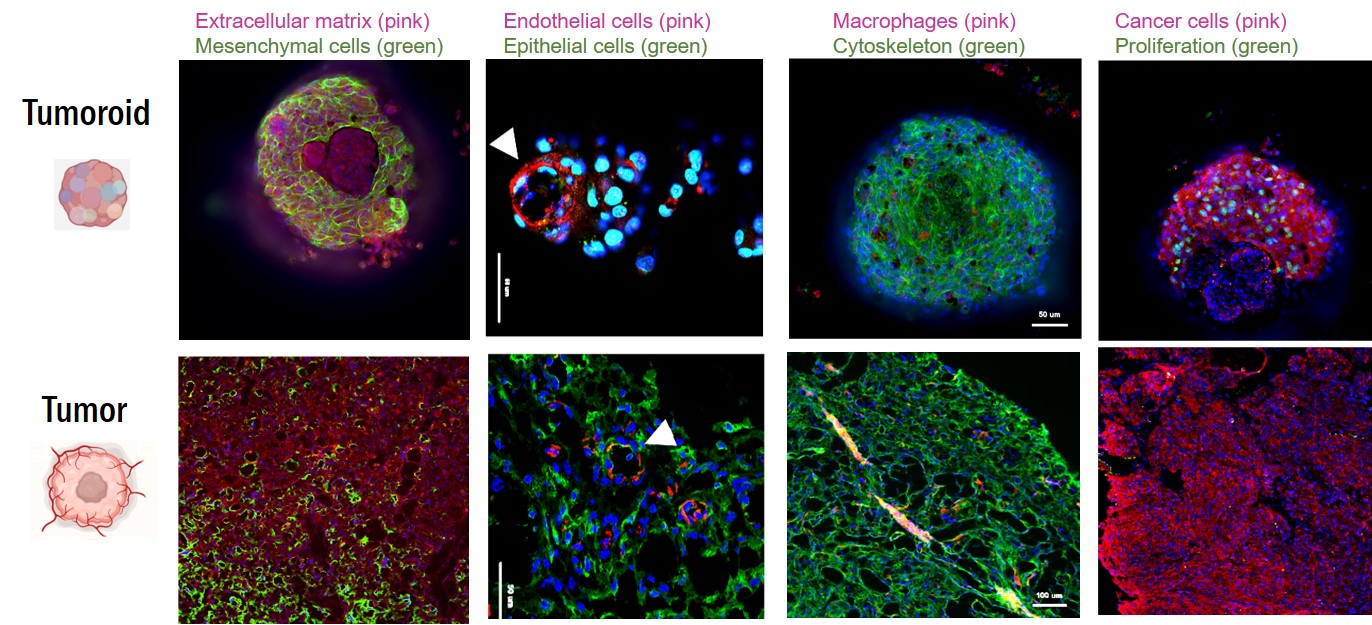A cancerous tumor is such a complex ecosystem that each patient must be treated individually. Researchers at Biosanté have chosen to study kidney cancer specifically, as it is often detected late and by serendipity. Unfortunately, as current treatments are not very effective, several have to be evaluated to find the most appropriate one. For this reason, it's vital to have a good understanding of the initial patient's tumor! In this context, researchers are developing tumoroids, which are structures derived from biopsies. Importantly, these tumoroids display the molecular, genetic and morphological characteristics of the patient's tumor, to facilitate pre-clinical applications.
Researchers at Biosanté have reconstituted mini-tumors (tumoroids) from the patient's primary tumor. Cells from a tumor fragment are dissociated and incubated with magnetized nanoparticles. Subjected to a magnetic field, the cells reassemble to form tumoroids (Figure 1).

Figure 1: 4 steps methodology for building tumoroids from the tumor 1. Dissociation 2. Insertion of magnetized nanoparticles 3. Built in 4. Culture for 7-14 jours at 37°C.
Transcriptomic and immunohistochemical analyses confirm that these structures reproduce the spatial organization of the various cells present in the original tumor. (Figure 2) [1].

Figure 2: Immunofluorescence identifying elements of the tumor environment.
Comparison between tumoroids and the original tumor, implanted in mice, shows a strong similarity in response or resistance to various therapeutic agents. Thus, for a given tumor, it becomes possible to test several treatments in parallel directly on tumoroids to predict their toxicity efficacy against the tumor. [2].
This simple and rapid method of tumoroid production offers a wide range of applications in oncology, from the study of tumor growth to the identification of new targeted therapies and the study of their toxicity, in order to offer personalized care for each patient.
In addition, interest in tumoroids has recently increased following their validation by the Food and Drug Administration (USA) as a substitute for animal testing.